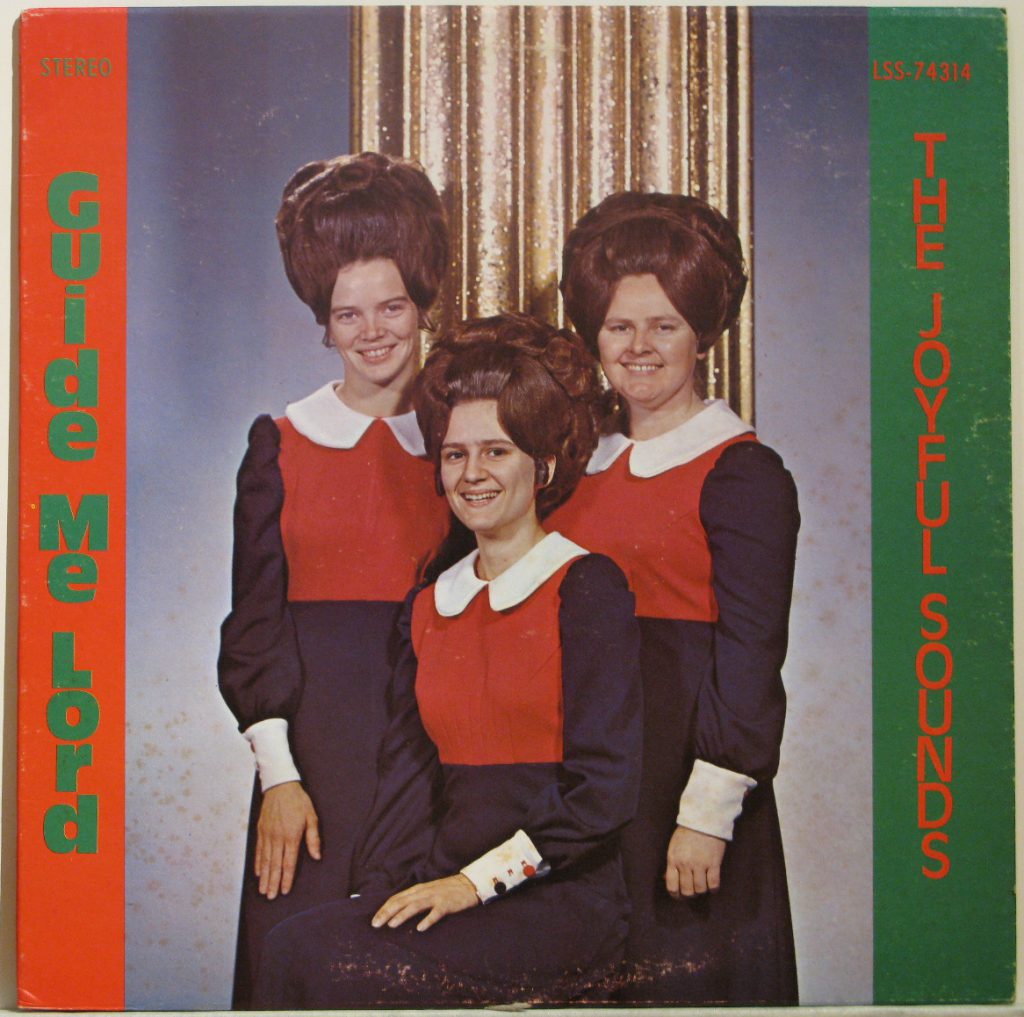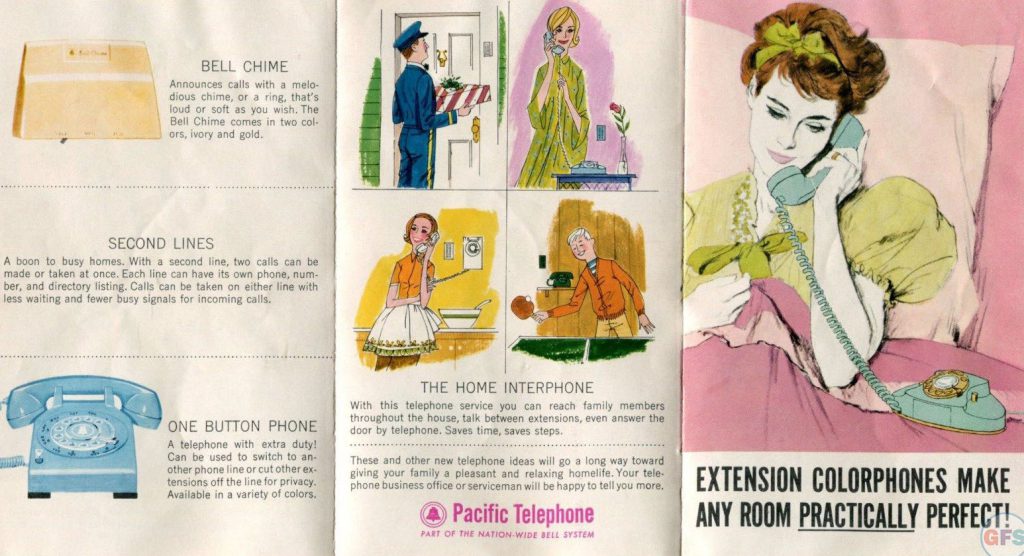
The following is excerpted from the recently released collection of shorts, More Theology and Less Heavy Cream: The Domestic Life of Pietro & Madeleine, by the inimitable Robert Farrar Capon. Below, the protagonists (Robert and his wife’s alter-egos) go toe-to-toe about, among other things, the nature of “Christian” anything.
Madeleine zapped off the TV set with the remote control switch. “I refuse to look at that dumb name anymore.”
“What dumb name?” Pietro asked, looking up from his newspaper.
“Pacific Telesis,” she snapped. “It sounds more like a skin disease than a phone company.”
“Maybe it’s not a phone company. Maybe it’s just a Christian punk rock band hiding its light under a bushel.”
Madeleine considered the possibility for a moment and discarded it. “Fat chance. Christian music groups always flaunt their Christianity. The bushel has yet to be invented that will cover up the big business of witnessing to Jesus for fun and profit. Not that that isn’t a rash in its own right, come to think of it.”
“My, my,” Pietro observed quietly. “I gather you have a bone to pick with musical proclaimers of the Gospel.”
“You bet I do. I can’t stand the way they overlay whatever legitimate musicianship they may have with a lot of commercial sincerity. Listening to them is like snorkeling your way through an ocean of pancake syrup.”
“It seems to me that I detect the prejudices of a fifth-generation Episcopalian. These people have to make a living, you know. Outside of you and your mother there isn’t all that much of a market for handbells, recorders, and the King’s College Choir.”
“Can I help it if I was raised to spot corn a mile off? And corn in the name of Jesus halfway across the country? I’m just saying what I think—and what a lot of other people think too, but can’t work up the nerve to admit.”
“Corn is ever with us, love,” Pietro said soothingly. “The beloved nineteenth-century hymnody of your youth was not exactly a seamless tissue of musical spun gold. Besides, the name of Jesus is, I think, quite able to fend for itself despite any or all lapses of taste on the part of its advocates.”

“Don’t try to soft-soap me,” Madeleine huffed. “You squirm your way through those testimonial-ridden performances just as much as I do.”
Pietro pondered briefly. “That is true; but permit me to make a distinction. My deepest objections to what is currently called ‘Christian music’ are rooted not in the tackiness of stretching the safety-net of piety under the supposedly daring highwire act of artistic performance, but in the use of the word ‘Christian’ to modify any human endeavor at all.”
“I think you just lost me.”
“Be patient and the way will be made plain. First of all, the word ‘Christian’ appears in Scripture only three times. In its two occurrences in the Book of Acts, it comes from the lips of unbelievers; and in the single reference in 1 Peter, it is used in a way that indicates the writer is at some pains to bestow respectability on it.”
“So? How do you get from there to saying there shouldn’t be any Christian anything?”
“Quite directly. The word, having had a dubious beginning, has had a history of even more dubious developments. If we are to exalt Christian musicians above all other musicians, why not Christian plumbers above all other plumbers, or Christian chicken-pluckers above their unbelieving but still feather-bedecked fellows? The point, you see, is that music, plumbing and poultry dressing can be—and most properly are—judged by the workmanship, not by the religiosity of their practitioners.”
“Hold on, though. Aren’t there some activities to which ‘Christian’ can legitimately be applied? How about Christian parenting, for instance—or Christian marriage?”
 “In a word,” Pietro said authoritatively, “my answer must be ‘No way, Jose’. If you will allow me rather more than a word, though, yet another distinction occurs to me. True enough, there will be Christians who marry and who raise children, just as there will be Christians who unclog sink traps. And truer still, their Christian beliefs may well impinge on them as they seek to fulfill their roles as partners, parents or plumbers. Nevertheless, the roles themselves (which, mind you, were designed by God when he created nature, both human and non-human) and—to come to the point—the performances given by people who assume those roles, can only be judged by the particulars of the roles, not by the religion of the role-players.”
“In a word,” Pietro said authoritatively, “my answer must be ‘No way, Jose’. If you will allow me rather more than a word, though, yet another distinction occurs to me. True enough, there will be Christians who marry and who raise children, just as there will be Christians who unclog sink traps. And truer still, their Christian beliefs may well impinge on them as they seek to fulfill their roles as partners, parents or plumbers. Nevertheless, the roles themselves (which, mind you, were designed by God when he created nature, both human and non-human) and—to come to the point—the performances given by people who assume those roles, can only be judged by the particulars of the roles, not by the religion of the role-players.”
“Say it simpler.”
“A good Jewish mommy is good primarily because of her mothering, not her religion. A bad Christian plumber cannot, by reading the Bible more regularly, make amends for running the sewer line into the dry well instead of the septic tank.”
“Thank you.”
“Thank you. Ergo, musicians should be judged by their music, poets by their skill with the language, and stockbrokers by their ability to recommend companies that do not go bankrupt. If these people are both Christians and baritones, bards or brokers, we should rejoice that Jesus has so many competent supporters. If they are good religionists but poor workmen, we should enjoy their fellowship in the Gospel but take our trade elsewhere. And if the local Buddhist makes the best pottery…”
“All right, already. But what about the idea that ‘the soul is naturally Christian’?”
“Ah!” Pietro sighed. “So it’s Tertullian, is it? Anima naturaliter christiana: the grain of truth that’s been used to justify a ton of half-baked, if not lethal, misrepresentations of the Gospel. Better just to talk about Jesus and the Good News; ‘Christianity’ is mostly a millstone around the neck of the Church.”
“But the Church is Christian, isn’t it?”
“Nope. It’s one, holy, catholic and apostolic. Call it Christian and you close the door on the whole worldful of non-Christians to whom it’s sent.”
“O…kay. How do you stand on the Christian religion?”
“Negatory. Not only isn’t it just for Christians, it isn’t even a religion. What Jesus did by dying and rising was the end of whatever religion was trying to accomplish, not the beginning of a new one.”
Madeleine sighed. “And just think: all this from just mentioning Christian music.”
“What you mentioned,” Pietro said archly, “was Pacific Telesis. If your itch for criticism is over, why don’t you switch the TV back on?”
More Theology & Less Heavy Cream is available now. Order your copy today!
https://www.youtube.com/watch?v=T3X6LxYQP4Y

COMMENTS
4 responses to “Deconstructing the Christian Music Industry, or, “What’s in a Name?” by Robert Farrar Capon”
Leave a Reply














Breathtaking. The images too. Badfinger in excelsis!
I cracked up at the album cover of ‘The Joyful Sounds’. Who would go outside in those hair styles?!?
Robert Farrar Capon is hilarious.
Rich, richer, richest. Thank you.